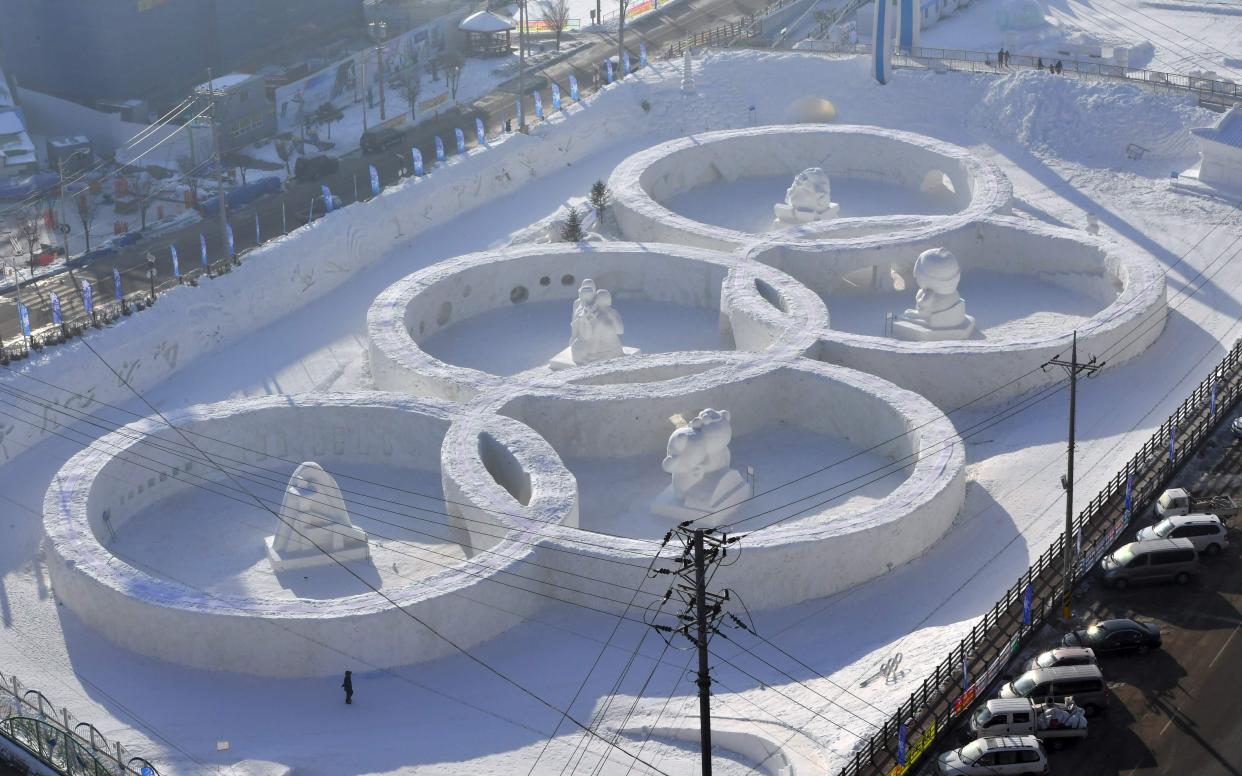Organisers fear South Korea's 2018 Winter Olympics will be too cold for spectators

Already struggling to counter poor ticket sales, a ban on Russian athletes, and security concerns over North Korea, South Korea’s stressed winter Olympics organisers are now fretting that the event may be too cold for spectators to show up.
While the presence of snow and ice will come as no surprise to winter sports fans, the Pyeongchang Games may actually end up being the coldest in three decades because the main stadium lacks a roof.
The absence of insulation will leave an estimated 35,000 spectators, including world leaders, exposed to biting winds and temperatures that feel like minus 14 degrees Celsius during the opening ceremony, according to internal documents seen by Reuters.
This would be even lower than the minus 11 degrees recorded at the 1994 Lillehammer Games in Norway, where the stadium also lacked a roof and which has held the record for the coldest Olympics for which data is available.
The confidential organising committee report reveals that a range of measures, including the distribution of hot packs and blankets, have been planned to prevent people suffering from hypothermia, a potentially lethal condition.
But according to an unnamed official, some 160 VIPs will be offered thicker and bigger blankets than spectators in the nosebleed seats.
South Korean President Moon Jae-in has invited Chinese President Xi Jinping and Japanese Prime Minister Shinzo Abe to the Games. The White House has also committed to sending a “high-level” American delegation.
The organisers also intend to use audience participation during the pre-ceremony entertainment to help keep spectators warm. A humanoid robot, which will reportedly bear the Olympic flame, may also serve as a distraction to the cold.
Pyeongchang’s $58 million stadium was built without a roof to save time and money, but fears about the impact on sports fans came to the fore last month when six people were reported to have suffered hypothermia at a K-pop concert at the same venue.
“The cold could ruin the entire opening party. The fate of the event is down to the mother nature,” ruling party politician and Pyeongchang local Yeom Dong-yeol told Reuters.
While the cold temperatures could be tackled with the installation of windscreens, the political chill from neighbouring North Korea has proven more difficult for the South Korean organising committee to overcome.
US Ambassador to the UN, Nikki Haley, was criticised on Wednesday for suggesting that the attendance of American athletes was an “open question” amid heightened tensions over Pyongyang’s nuclear and missile programmes.
But ticket sales were already struggling. As of December 5, ticket sales totalled just 54 per cent of the target, at 578,000.
Russia will also be absent from the games after the International Olympic Committee issued a ban, citing evidence of state-sponsored, systematic cheating of doping controls.
However, Russian President Vladimir Putin declared that Russian athletes could compete in the Olympics on an individual level if they wanted to.
“This is fortunate, and I think it’s something to welcome,” a senior South Korean official told the Hankyoreh newspaper. “Russia is a powerhouse in the Winter Olympics, and frankly speaking, the government was worried and concerned about the IOC’s decision [to ban it]”.

